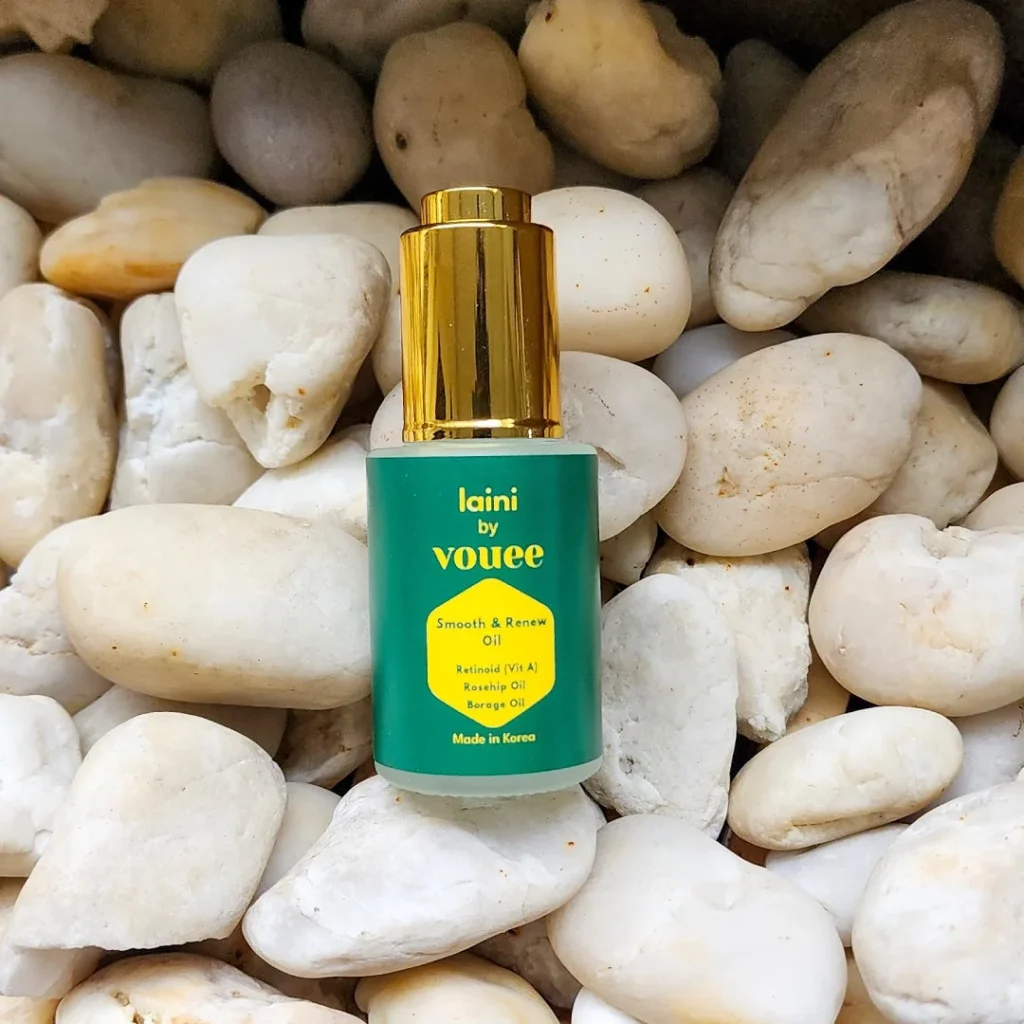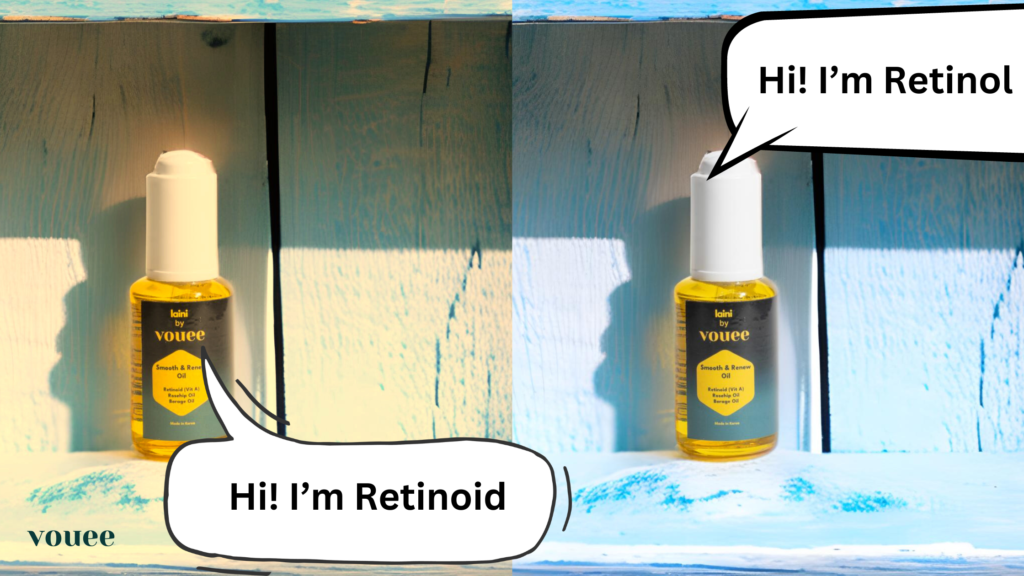Summary Table
| Key Aspect | Description |
|---|---|
| Vitamin A vs. Retinol | Vitamin A is a broad group of retinoids, while retinol is a specific derivative used in skincare. |
| Benefits in Skincare | Retinol accelerates skin renewal and treats aging signs, while Vitamin A supports overall skin health. |
| Application Advice | Gradual introduction and consistent use are recommended for retinol; sunscreen is essential due to increased sun sensitivity. |
| Expert Insights | Dermatologists endorse retinol for its anti-aging benefits, emphasizing careful and informed use. |
| Dietary Importance | Vitamin A-rich foods complement topical retinol use for overall skin health. |
The above is a quick and informative preview for those in a rush. We encourage you to read on to learn more about this essential vitamin. Lets get to the bottom of this conundrum: Are Vitamin A and Retinol the same thing?
Introduction
The skincare world is replete with terms that often baffle even the most enthusiastic skincare enthusiasts. And for every one word you finally learn, there are 15 other ways people are saying it. A common point of confusion is understanding the relationship between Vitamin A and retinol. Are they the same, or do they stand as distinct potions in the realm of skincare? Lets unravel the intricacies of Vitamin A and retinol, and their respective roles in skincare.
Understanding Vitamin A: The Foundation
Vitamin A, a vital nutrient for overall health, is often lauded for its crucial role in maintaining good vision, a robust immune system, and ensuring the proper functioning of our organs. When it comes to skin health, Vitamin A is a powerhouse, known for its skin-renewing properties. The term ‘Vitamin A’ itself is a broad umbrella, encompassing a group of fat-soluble retinoids, including retinol.
Many celebrities and skincare aficionados have often attributed radiant skin to a regimen rich in Vitamin A, highlighting its importance not just as a dietary essential but also as a skincare staple. Shall we take their word for it?
Retinol: A Specific Member of a large Vitamin A Family
Within the family of Vitamin A compounds lies retinol – a specific derivative extensively used in skincare. Its popularity stems from its proven effectiveness in combating signs of aging, improving skin texture, and reducing the appearance of fine lines and wrinkles. Retinol works by accelerating skin renewal, enhancing collagen production, and stimulating cellular repair at the night.
For those exploring retinol-based products, VOUEE offers the Laini Renewing Retinol Night Oil, a perfect blend of efficacy and gentleness, designed to rejuvenate the skin while you sleep.
Comparing Vitamin A and Retinol: Similarities and Differences
When dissecting the relationship between Vitamin A and retinol, it’s essential to recognize that while all retinol is Vitamin A, not all Vitamin A is retinol. Here’s a comparative look:
| Aspect | Vitamin A | Retinol |
|---|---|---|
| Nature | A broad category of compounds. | A specific type of Vitamin A. |
| Sources | Found in foods and supplements. | Mainly used in topical skincare products. |
| Benefits | Essential for overall health. | Primarily known for anti-aging skin benefits. |
| Skincare Usage | Less direct use in skincare products. | Widely used in serums, creams, and oils. |
Understanding this distinction is crucial for anyone looking to integrate these components into their skincare regimen. For instance, incorporating a dietary source of Vitamin A, such as carrots or sweet potatoes, complements the topical application of retinol, creating a holistic approach to skincare.
Let’s delve deeper into the unique attributes and roles these components play in skincare.
The Role of Retinol in Skincare
Retinol, a derivative of Vitamin A, stands as a celebrated ingredient in the skincare industry, lauded for its transformative effects on the skin. This potent compound has earned its reputation due to its remarkable ability to accelerate the process of skin renewal. When applied topically, retinol penetrates the skin’s outer layers to repair the lower layers where collagen and elastin reside, thereby enhancing skin texture and elasticity.
Action
Retinol operates by stimulating the production of new skin cells, effectively pushing older, dead cells to the surface where they are shed. This process results in a more vibrant, youthful complexion, characterized by reduced fine lines, wrinkles, and an overall improved skin tone. The efficacy of retinol in reversing sun damage and mitigating the effects of aging is not just a claim but a well-documented fact, backed by numerous dermatological studies.
For individuals seeking to incorporate retinol into their skincare regimen, the Vouee Laini Renewing Retinol Night Oil offers a perfect blend, providing the skin with the rejuvenating benefits of retinol while ensuring minimal irritation.

Smooth & Renew Oil
Achieve a luminous, youthful-looking complexion with our Night time Retinoid Oil, formulated specifically for melanin-rich skin.
Powered by a gentle yet effective blend of Retinyl Palmitate, Rosehip Oil, and Borage Oil, this nourishing serum targets the root causes of uneven skin tone, hyperpigmentation, and dullness, revealing a brighter, more radiant you.
Vitamin A in Skincare and Nutrition
Moving beyond retinol, it’s crucial to explore the broader spectrum of Vitamin A in the context of skincare and nutrition. Vitamin A, in its various forms, plays a pivotal role not only in maintaining healthy skin but also in supporting overall wellness.
Skincare Benefits
In skincare, Vitamin A’s benefits extend beyond its retinol derivative. It’s known for aiding in skin repair, maintaining skin firmness, and providing essential nutrients that keep the skin healthy and hydrated. Products containing Vitamin A derivatives, other than retinol, like retinaldehyde and tretinoin, are also effective in addressing acne, pigmentation, and aging signs.
Nutritional Importance
Dietary intake of Vitamin A is equally crucial. This essential nutrient, found in foods like carrots, spinach, and sweet potatoes, contributes to skin health from the inside. It helps in repairing skin tissue and maintains moisture balance, giving the skin a natural glow and resilience against environmental stressors.
Side Effects and Safety Considerations
While retinol and Vitamin A offer numerous skincare benefits, their usage comes with considerations. It’s important for users to be aware of potential side effects and adopt a careful approach to incorporate these ingredients into their skincare routine.
Understanding Tolerance Levels
Retinol is known for its potency, which means it can sometimes lead to skin irritation, redness, and peeling, particularly in individuals with sensitive skin or those new to retinol-based products. It’s recommended to start with lower concentrations and gradually increase the strength as the skin builds tolerance.
Sun Sensitivity
Both retinol and other forms of Vitamin A can increase the skin’s sensitivity to the sun. Therefore, it is imperative to pair these products with a high-SPF sunscreen, like the Ututu Moisturiser with SPF for Dark Skin Tones, to safeguard the skin against UV damage.
Expert Opinions and Dermatological Advice
The skincare community, particularly dermatologists and skincare experts, have long endorsed the benefits of Vitamin A and retinol, albeit with an emphasis on informed usage.
Dermatologists’ Perspective on Retinol and Vitamin A
Dermatologists advocate for retinol’s efficacy in enhancing skin appearance, citing its ability to stimulate collagen production and accelerate cell turnover. However, they also emphasize the importance of gradual introduction into skincare routines, particularly for those with sensitive skin, to mitigate potential irritation or adverse reactions. They recommend beginning with lower-strength retinol products and gradually increasing potency as the skin adapts.
Balancing Efficacy and Tolerance
The balance between efficacy and skin tolerance is a pivotal aspect of using Vitamin A derivatives. Experts suggest that while higher concentrations of retinol or other Vitamin A forms may yield quicker results, they also increase the likelihood of skin irritation. Hence, a tailored approach, considering individual skin types and concerns, is advocated.
Conclusion
Vitamin A and retinol – it’s evident that while they are related, they are not the same. Retinol, a derivative of Vitamin A, is a specific ingredient extensively used in skincare for its anti-aging and skin-renewing properties. Meanwhile, Vitamin A in its entirety serves broader roles in both health and skincare.
Comprehensive Understanding
Understanding the distinction between Vitamin A and retinol, their respective roles, benefits, and the appropriate ways to incorporate them into skincare regimes is crucial for anyone looking to enhance their skincare practice. This knowledge enables users to harness the full potential of these ingredients while minimizing risks and adverse effects.
The Need for Sun Protection
Given the increased sun sensitivity associated with retinol and other Vitamin A derivatives, it’s imperative to pair these products with effective sun protection. Incorporating a high-SPF sunscreen, such as Ututu Moisturiser with SPF for Dark Skin Tones, is essential to protect the skin from UV damage.
Informed Choices in Skincare
The journey through the realms of Vitamin A and retinol highlights the significance of making informed choices in skincare. Understanding these components, their mechanisms, benefits, and the precautions to take empowers users to make decisions that align with their skin’s health and their beauty goals.







You must be logged in to post a comment.